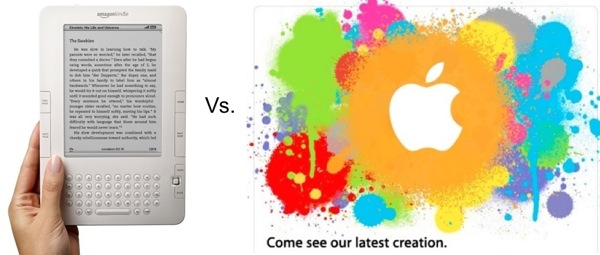Nissan Leaf E+ Top Speed

Amazon, mere hours after announcing a fairer (if stricter) revenue share for publishers, has pulled another rabbit out of its hat: It's letting developers build apps for the Kindle. Fascinating idea, but can it save the Kindle before the Apple Tablet arrives?
Here's how Amazon's spinning the news in its press release:
For the past two years, Amazon has welcomed authors and publishers to directly upload and sell content in the Kindle Store through the self-service Kindle publishing platform. Today, Amazon announced that it is inviting software developers to build and upload active content that will be available in the Kindle Store later this year.
It's pretty momentous news, and Amazon notes that it's a direct response to numerous requests from developers over the years to access the Kindle's code so they can build software and plug-ins for the e-readers. Hence the new "Kindle Development Kit" with "programming interfaces, tools and documentation" and a simulator so that developers can make active content for the device. Amazon says that Handmark is building a dynamic Zagat guide, Sonic Boom is building "word games and puzzles" and EA is working on some games too.
The clear intention from Amazon is to expand the Kindle's capabilities so that it offers more of a value proposition to its customers than a single-purpose e-book reading device. We imagine that as part of the Amazon.com ecosystem that supports the Kindles, Amazon will be crafting some kind of app store to serve up all these lovely software nuggets.
But look at the facts: Amazon waited two years for this, patiently ignoring those supposed calls from developers–when presumably it could have implemented the KDK ages ago. The e-ink screen on the Kindle is so slow to update that it's not useful even for Web browsing (which is why Plastic Logic left the facility out of its competing Que e-reader) and it's hard to imagine many apps, let alone games beyond a basic level of sophistication, working on the screen.
Furthermore, Amazon's now very, very late to the App Store game–a game Apple has practically invented, led, and now dominates. Its iPhone App system launched in July 2008, and now has well over 100,000 apps which have been downloaded over 3 billion times. Following on Apple's heels came many others, of which the most notable is the Android one–it launched in October 2008, and now has just 10,000 apps. Both Nokia's and BlackBerry's versions trail well behind this, with mere thousands of apps…and that's despite Nokia's commanding position as the World's biggest cell phone maker. Of course mere app count alone isn't an indicator of success for these stores, but it does clearly illustrate customer enthusiasm for the platforms concerned, and how excited developers are by the relevant device's capabilities.
And while Amazon makes much of those "#1 bestselling, most wished for" claims for the Kindle, it's worth noting that the International edition is something of a joke. And even more interesting is the fact that I, living in Europe and being an avowed gadget fanatic, have never seen anyone, ever, using a Kindle–even Americans on holiday. In fact I've never seen anyone reading an e-reader of any kind. Laptops, smartphones, iPhones by the thousand, iPods by the million: Yes. E-Readers: No.
So in summary, the Kindle app system is late, intended to expand the usefulness of a device which is possibly very limited in capability, and it's likely to be an extremely U.S.-focused affair. It is, let's face it, a desperate move by Amazon to garner some news headlines and possibly a few thousand more customers before Apple's tablet PC arrives. This is a machine that will slot into the already-successful iTunes ecosystem, will launch globally, will have a fast processor and color display, a touchscreen, and Apple's design cachet. It'll beat the Kindle on every single front, except price–but when you look at the slew of powers it'll have versus Amazon's limited ones, many consumers will work out that you get what you pay for.
Read More: 2010: The Only Year of the E-Reader
Source: https://www.fastcompany.com/1522508/amazon-adds-apps-kindle-speeding-death-e-readers







Tidak ada komentar:
Posting Komentar